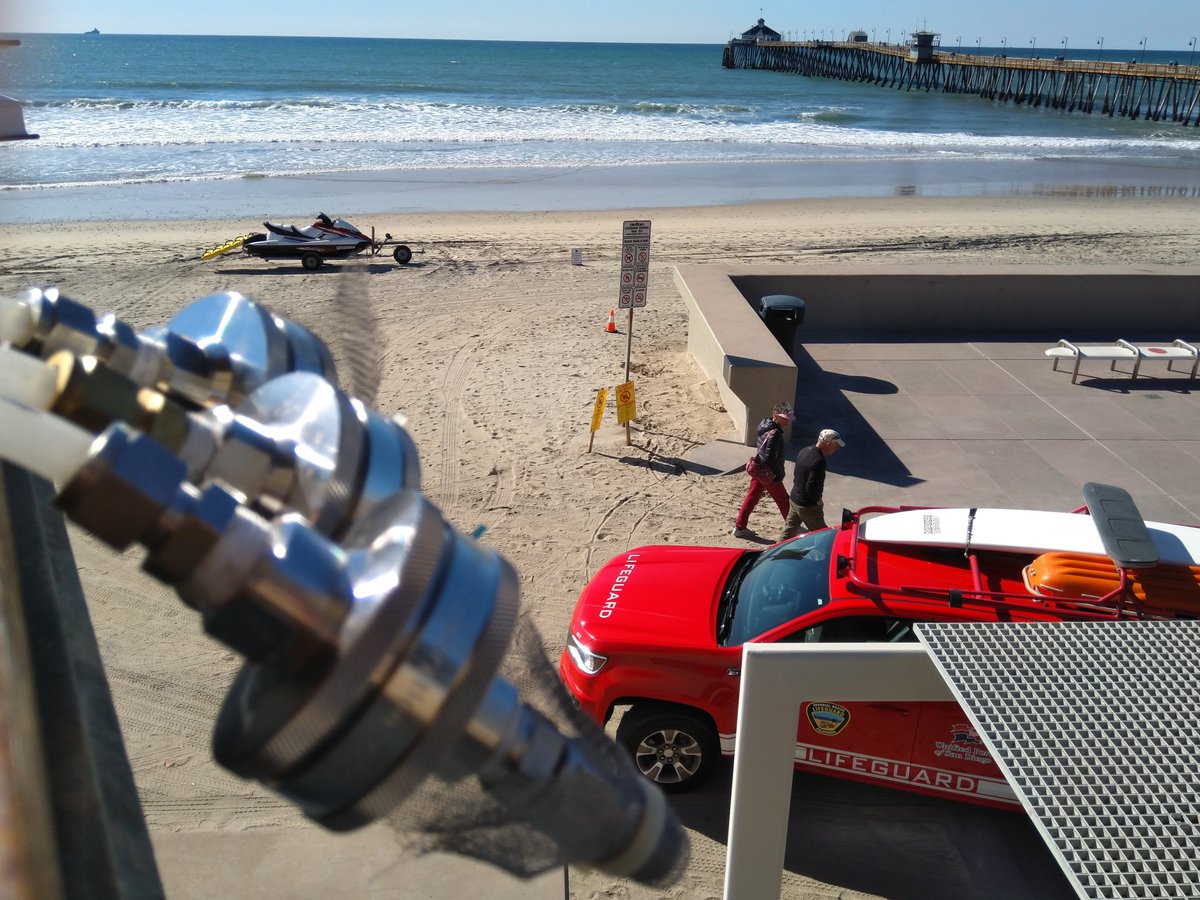Pollution Transfers to the Atmosphere Through Sea Spray Aerosol
A new research led by Scripps atmospheric chemist and recent PhD grad Matthew Pendergraft has confirmed that coastal water pollution transfers to the atmosphere in sea spray aerosol, which could potentially reach people beyond just beachgoers and swimmers. This research has implications for the environment and public health.

Scripps Institution of Oceanography
Understanding and protecting the planet since 1903. @UCSanDiego

-
New research led by Scripps atmospheric chemist @kprather88 & recent PhD grad Matthew Pendergraft confirmed coastal water pollution transfers to the atmosphere in sea spray aerosol, which could potentially reach people beyond just beachgoers and swimmers. https://t.co/SlWXkflMzy
— Scripps Institution of Oceanography (@Scripps_Ocean) March 2, 2023 -
“People worry about swimming and surfing in polluted water, but not about breathing it in, even though the aerosols can travel long distances and expose many more people than those just at the beach or in the water.” - @kprather88 pic.twitter.com/YcbJCHMq1i
— Scripps Institution of Oceanography (@Scripps_Ocean) March 2, 2023 -
Researchers sampled coastal aerosols at Imperial Beach & water from the Tijuana River, then used DNA sequencing & mass spectrometry to link bacteria & chemical compounds in coastal aerosol back to the sewage-polluted Tijuana River flowing into coastal waters. pic.twitter.com/WgsVZj4uCD
— Scripps Institution of Oceanography (@Scripps_Ocean) March 2, 2023 -
Aerosols from the ocean were found to contain bacteria and chemicals originating from the Tijuana River.
— Scripps Institution of Oceanography (@Scripps_Ocean) March 2, 2023
“This research demonstrates that coastal communities are exposed to coastal water pollution even without entering polluted waters." - Pendergraft
📸: @WILDCOAST pic.twitter.com/68NeVhj4Yp -
Researchers caution that the results don't mean people are getting sick from sewage in sea spray aerosol. Infectivity, exposure levels & more determine the risks that need further investigation. Now the team is conducting follow-up research to detect viruses & airborne pathogens.
— Scripps Institution of Oceanography (@Scripps_Ocean) March 2, 2023 -
The research was made possible through collaborations with @CAICECCI, @UCSDMedSchool, @UCSDJacobs, and @UCSDSkaggsSOP. Learn more about the study. ⬇️ https://t.co/SlWXkflMzy
— Scripps Institution of Oceanography (@Scripps_Ocean) March 2, 2023
